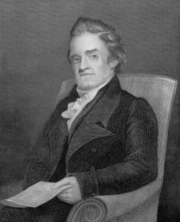Caroline’s Innovation Questions
1) In your opinion, what is innovation? Well first I checked with Noah Webster on the definition of “innovation” and was pretty disappointed.
 Main Entry: in·no·va·tion
Pronunciation: \ˌi-nə-ˈvā-shən\
Main Entry: in·no·va·tion
Pronunciation: \ˌi-nə-ˈvā-shən\
Function: noun
Date: 15th century
1 : the introduction of something new
2 : a new idea, method, or device : novelty
I believe Webster’s attempt on defining INNOVATION is incomplete without mentioning impact, disruption, and evolution. Without those three little words I personally don’t believe you can achieve true innovation.
2) How has innovation changed in the 21st Century? I believe innovation has changed the 21st century much like it’s changed every other century, only at a much faster pace. This is due to the dynamic and fluid properties of the web, which allows information to flow instantaneously from one to hundreds of thousands or millions, where prior methods of communication and sharing of information was slow and reached few.
3) Why is innovation becoming increasingly important to organizations? Innovation has always played an important role in the business world, if you can create innovative products and/or solutions faster than the next company, and gain adoption, you win. Now mix in the information from my last answer and innovative competition accelerates at an increasingly rapid pace.
4) When is innovation used as intervention? I believe companies are beginning to approach innovation as a proactive, full-time, job instead of reacting to innovative competition in the marketplace, which replaces a more “intervention-like” model. Today’s “crystal ball” economy dictates the creation of new markets, reduction in costs, and continued quality improvement ahead of competitors, rather than a mere response to them.
5) What about the problem of hyping things as innovations that are not really that innovative – and dismissing true innovations because they are not understood? It’s called advertising and it will always be a factor. Meaning we will continue to see, hear, filter, and buy into the “hype” on many occasions but only through practical education, understanding, and adoption will REAL innovation gain traction over the “hyped” version.
6) What are some tips, techniques, and issues for using innovation in real world? First define what you believe to be true INNOVATION. I believe the product and/or service is only innovative IF there is a practical application. For example: Silver’s semi-sticky adhesive alone was NOT innovation, only after a practical application and adoption was found did it turn into a billion dollar Post-it Note dynasty. My tip and/or technique is to collaborate and explore practical, yet innovative, applications focused on impacting, disrupting and evolving the market through your new product and/or service.
A BIG thanks goes to Caroline Huebner, a graduate student in the Educational Technology program at Concordia University in Montreal, Canada, for reading my blog and, more importantly, posing these questions.
Related posts:
- INNOVATE or DIE!
- Knock 3 times, for INNOVATION
Subscribe
All the recruiting news you see here, delivered straight to your inbox.
Just enter your e-mail address below
RecruitingBlogs on Twitter
Groups
-
Recruiters On LinkedIn
1801 members
-
Corporate Recruiters
316 members
-
Recruiting tips for begi…
180 members
-
The Recruiting Bar
190 members
-
Recruiting Humor
222 members
-
News from the Recruiting…
34 members
-
Contractors Recruitment
62 members
-
Recruitment Process Outs…
194 members
-
Virtual Recruiters Netwo…
619 members
-
Independent Recruiters
530 members
© 2025 All Rights Reserved
Powered by
![]()
Badges | Report an Issue | Privacy Policy | Terms of Service
About
With over 100K strong in our network, RecruitingBlogs.com is part of the RecruitingDaily.com, LLC family of Recruiting and HR communities.
Our goal is to provide information that is meaningful. Without compromise, our community comes first.
Join the Network!
RecruitingDaily.com
One Reservoir Corporate Drive
4 Research Drive – Suite 402
Shelton, CT 06484
Email us: info@recruitingdaily.com

You need to be a member of RecruitingBlogs to add comments!
Join RecruitingBlogs